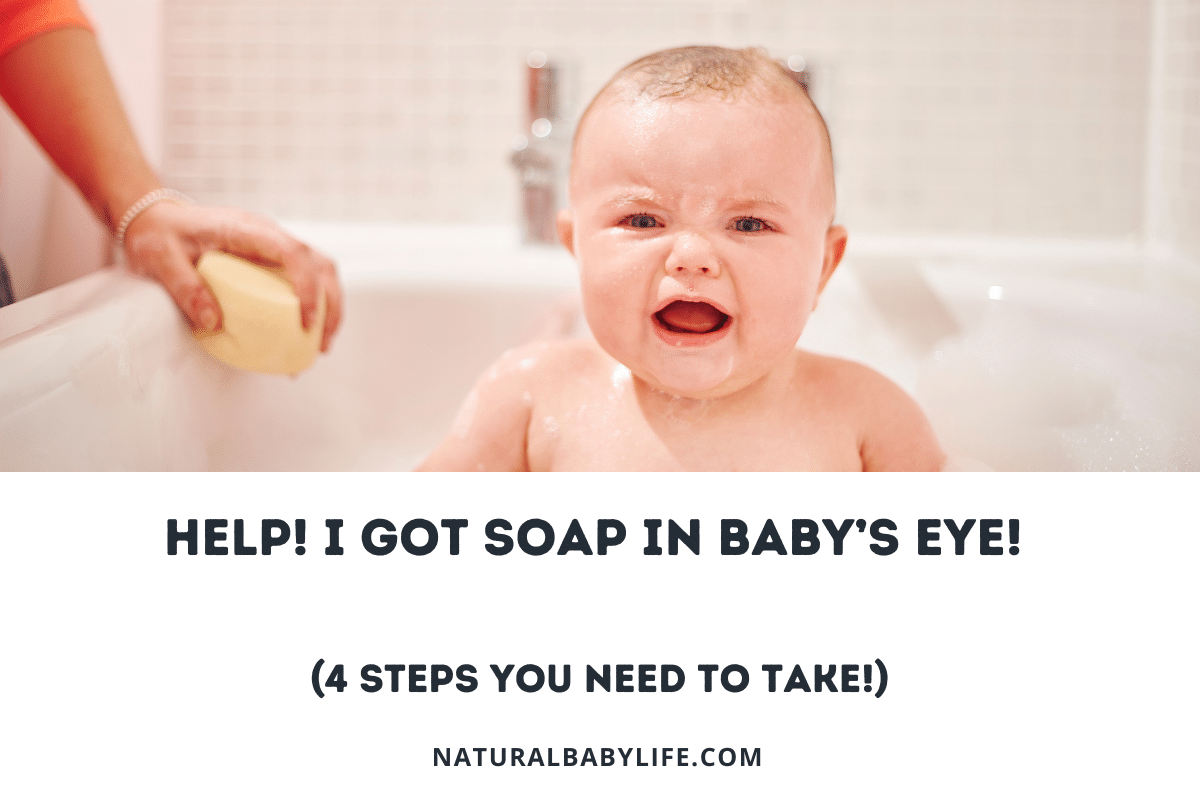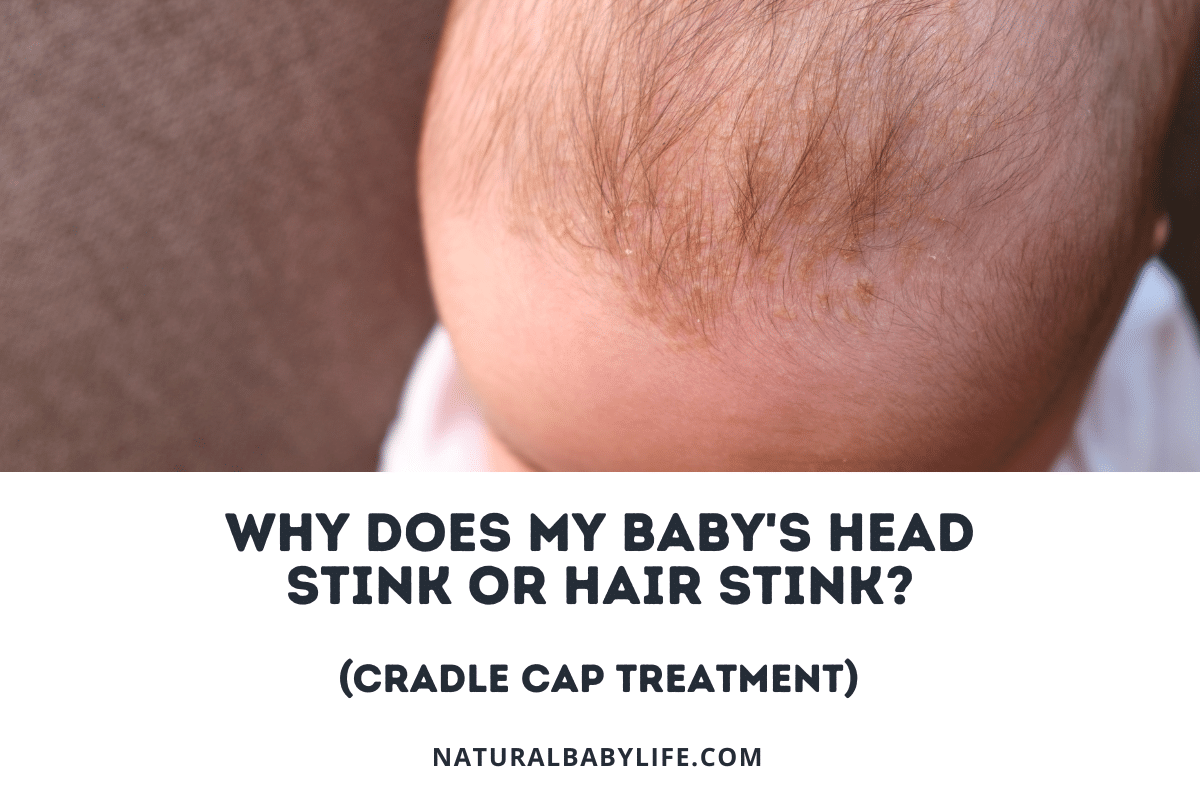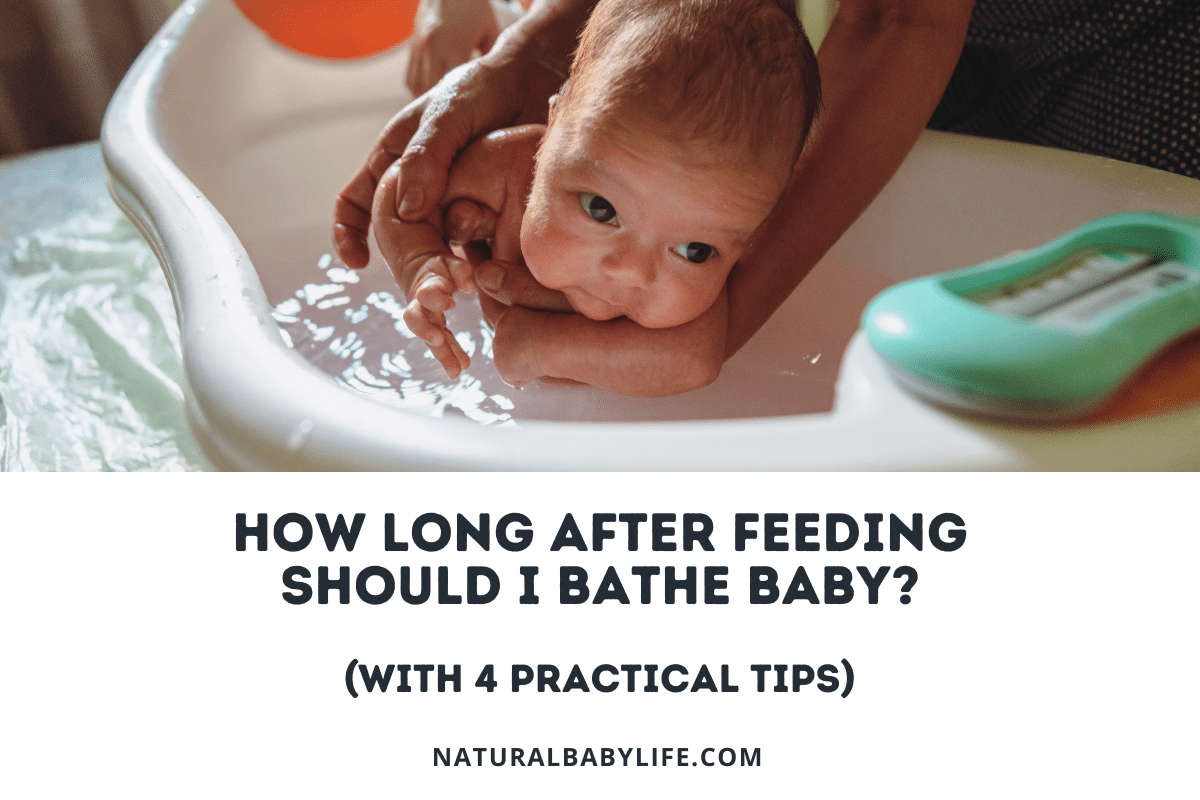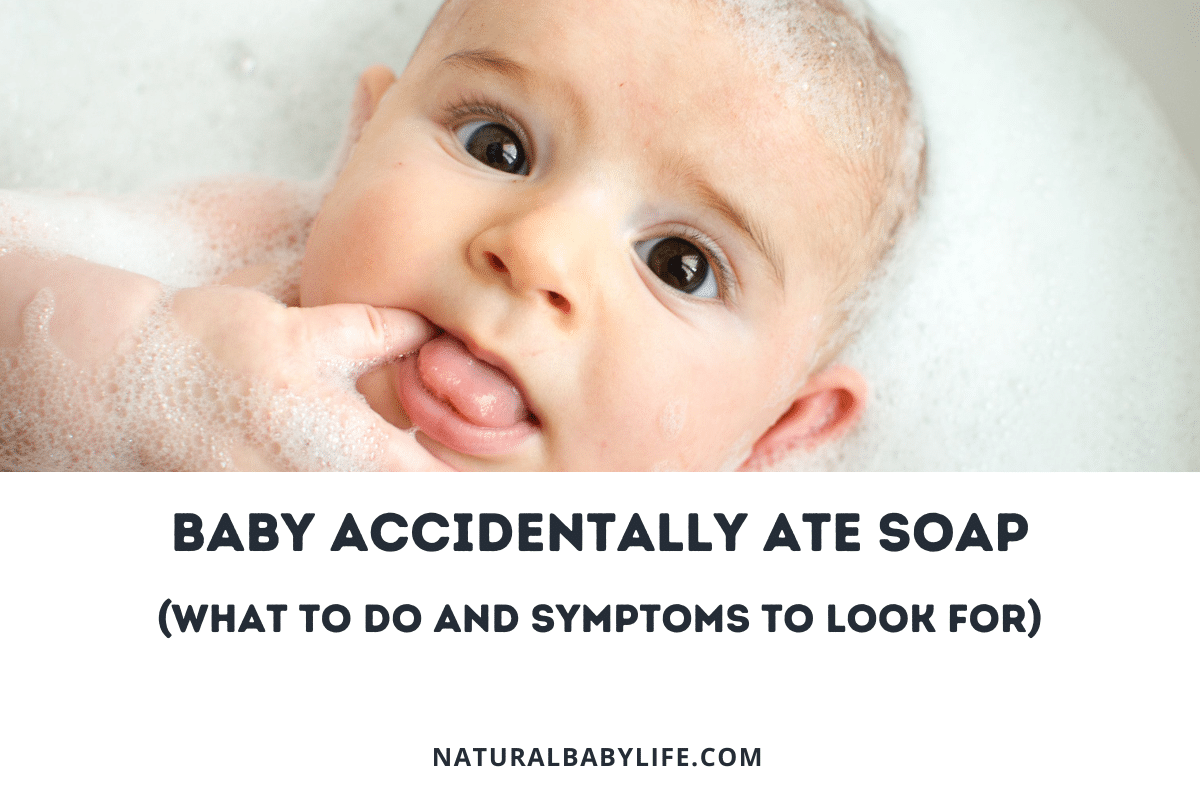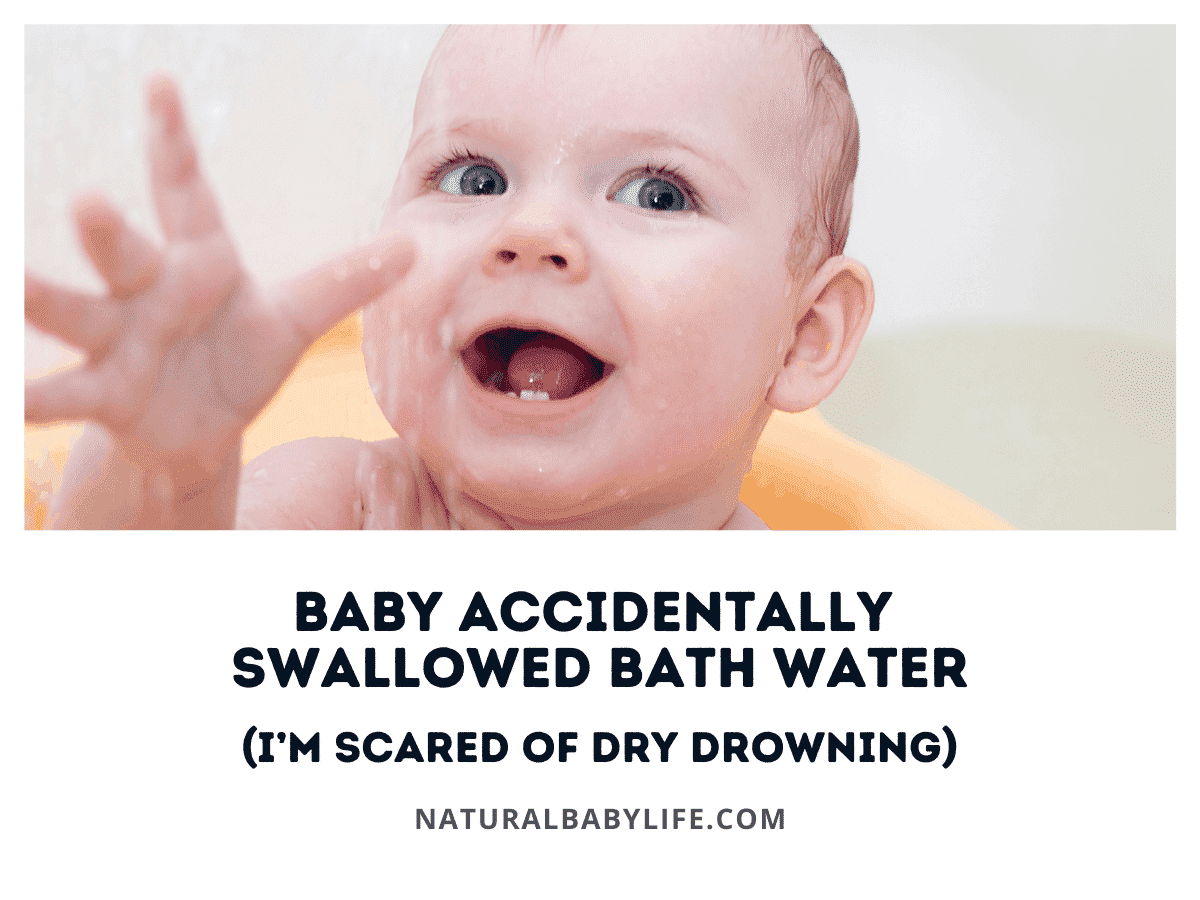A cooing baby, a warm bath and the smell of baby wash is a peaceful scene, but when your little one suddenly decides that baths are not their thing it can make bath time a stressful time for the both of you. If you’re thinking what do I do if my baby hates baths all of a sudden, keep reading for tips.
Fear, discomfort, and overstimulation are the most common reasons babies may hate taking a bath. As babies develop, they begin to interpret their surroundings differently. This means they can suddenly become scared of the sounds and sensations of bath time such as draining or splashing water and hot or cold temperatures.
Read on for more insight on how to make bath time a fun bonding experience for you and baby.
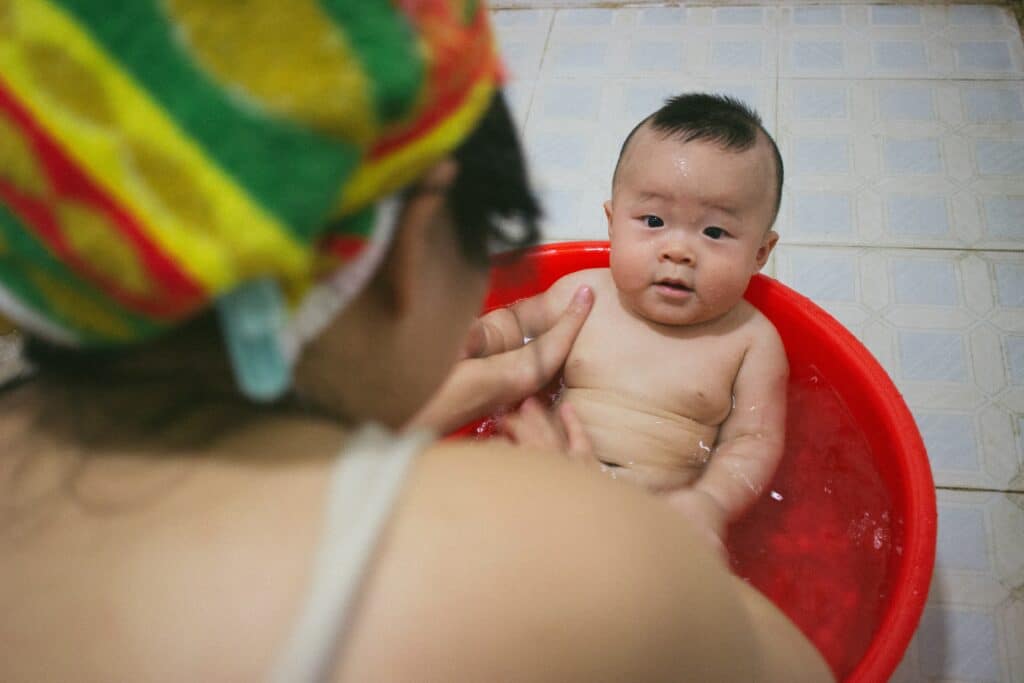
Table of Contents
My baby hates baths all of a sudden: What do I do?
From the minute they’re born, babies learn, grow, and change daily, which means that something they enjoyed yesterday, like a warm bath, could be something that upsets them today. This can make things a bit tricky for us as parents, especially when it’s something you have to do frequently, like bathing them.
While it may be frustrating that your baby hates the bath all of a sudden, it’s important to be patient with your little one and think about it from their perspective. We certainly understand the world around us a lot better than a baby does. Before we look at what you can do to make bath time more peaceful, let’s consider why your baby might hate the bath.
Why do babies hate the bath?
If your baby used to enjoy the bath but now hates it all of a sudden, consider some of the following causes. These will help you discover why bath time is creating trouble for your little one:
A negative experience. Perhaps your child had a bad experience in the bath recently that is still fresh in their mind and creating anxiety. A fall in the tub or face full of water causing them to cough and choke could be leading to a sudden fear or resistance to bath time. Help baby feel more comfortable by ensuring they’re secure in the tub and using lots of encouraging language. You might also try having them help fill the tub while explaining how the tub works, which could make them feel confident during bath time.
Sensory overload. Your child may simply dislike some of the sensory experiences associated with the bath, like body temperature changes or perhaps even the loud noises related to the tub (think faucets or drains). To keep your child from filling overwhelmed at bath time, try filling and draining the bath without your child in the room. Also, creating smooth transitions throughout bath time can help minimize body temperature fluctuations. Keeping the rooms you use during this time at an even, warm temperature can help with any shock.
Bad timing. It could even be that the time of day they take a bath is not ideal for them, making it harder for them to tolerate the tub. Some children are more receptive to baths at different times of the day, depending on their mood. If evening baths are becoming troublesome for your child, try switching to a mid-morning or afternoon bath and see how they react.
Are you triggering your child’s anxiety? Consider your own mood and behavior surrounding bath time. Children can easily pick up on our emotions, so if doing bath time at the end of the day when you’re tired causes you stress, it could also be stressful for your baby or toddler. Experiment with your routine to make this a more relaxed experience for both of you.
The fear of water is common in childhood and can be a phase your baby or toddler may experiences for weeks, months, or more. Now that you’ve got a few ideas as to why your baby seems upset at the mention of a bath, check out the list of tips, tricks, and advice I’ve created below for helping a child who is scared of the bath.
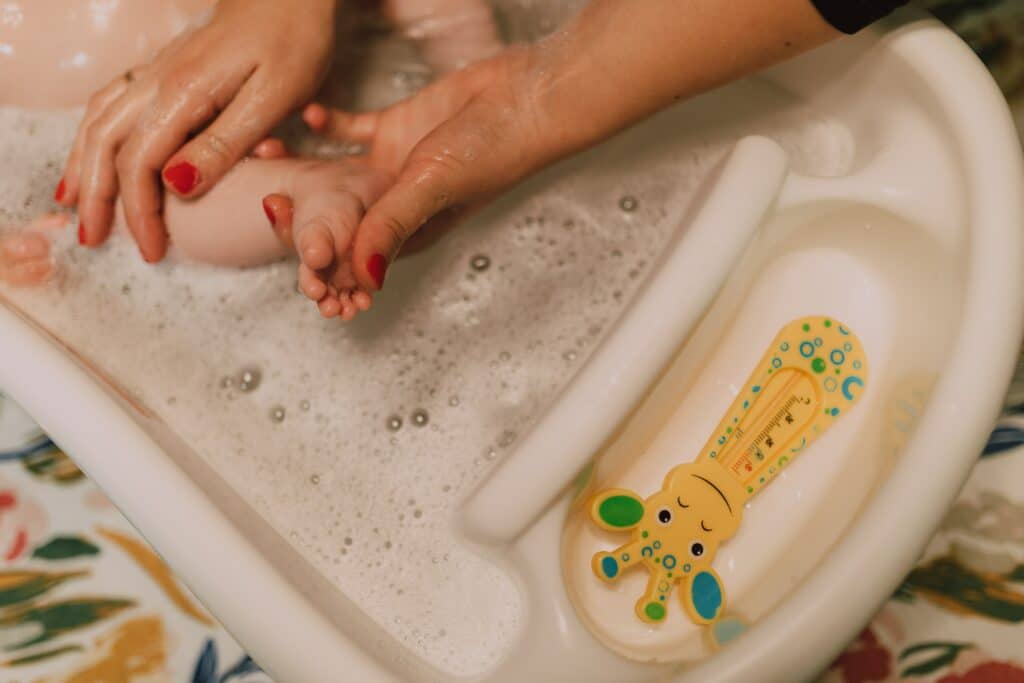
Tips, tricks, and advice for helping a baby who is scared of the bath
Here are a few things you can do to help understand why your child suddenly hates the bath and make it a more comforting, fun experience:
- Be sure to address this bath time checklist:
- Is the water the proper temperature? According to the Mayo Clinic, the ideal water temperature for a baby’s bath should be 100 °F or 38 °C. Be sure to test the water with your elbow or use a bathtub thermometer to ensure it’s not too hot or cold before placing baby in the tub. I’ve written more about this topic here.
- Is baby secure in the water? Use a baby tub or sink and support baby with your free hand. You can also use a non-skid mat for additional security to keep baby from sliding around in the tub.
- How does the room feel? Is the bathroom cold? Try letting the hot shower run while you prepare the bath to warm up the room making temperature changes more tolerable for your little one.
- Choose the ideal time of day for baths. If evening baths are not going well lately, try a morning or afternoon bath instead. Your child may be overstimulated or tired at the end of the day making a bedtime bath more stressful for them.
- Grab a rubber ducky! New toys or bubbles can make bath time more fun and distract from any fear or discomfort.
- Get in the tub with your tot. Your baby may feel more secure if you’re in the water too!
- Be prepared. Set out the towel, toiletries, and lay out fresh clothes and diaper before you start the bath, so you’re prepared for a quick transition afterward.
- Be a soothing presence. Talk with your baby in a soothing voice, sing or play quiet music to help keep baby calm.
- Adjust the depth of the water. Try using a little more or a little less water in the tub to see what will help baby feel more comfortable.
- Get ready solo. Try preparing the bath before bringing your child into the room and draining the tub after they’re out of the room. The loud noises associated with the tub could be overwhelming or scary for your child.
- Try a sponge bath. Getting a baby used to the sensation of bathing can be done by trying a sponge bath. Place your child on top of a towel in a baby tub or sink. Then, use a warm bowl of water and cloth to gently wash baby to get them used to this new experience.
- Help baby feel warm and secure. A handy trick to help keep baby feeling secure and warm in the tub is to cover baby’s body with a washcloth while you bathe them. Be sure to keep it wet and warm through bath time.
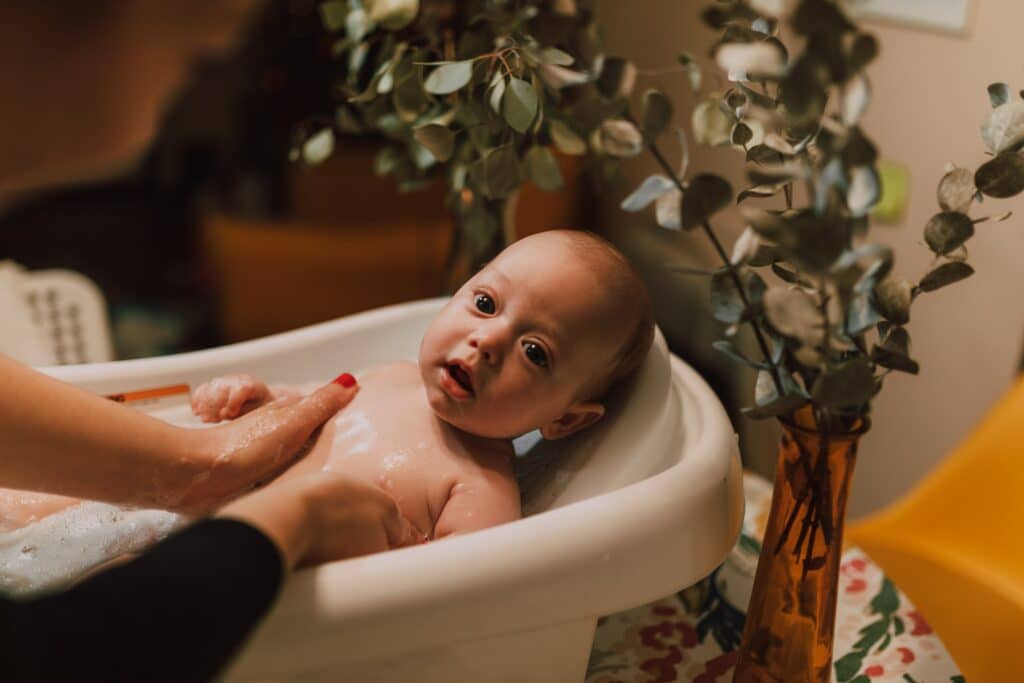
How to calm a newborn during a bath
Finding an enjoyable bath time routine with your newborn can take some trial-and-error as you get to know your baby. Here are a few tips to help start off on the right track with bathing your newborn:
- Eliminate shock. When you lower baby into the tub, do so slowly. Starting feet-first can help in transitioning from your arms to the bathtub.
- Keep them warm. Again, keep the water the proper temperature and keep the environment warm and calm. Have your towel and change of clothes ready to go for afterward.
- Support your baby. Keep them supported at the head and neck using your free hand to bathe them. Using a washcloth to cover baby can help them feel secure protected in the bath.
- Take note of baby’s mood. Pay attention to how your baby reacts to bath time to help choose the best time of day for bathing. Some children are invigorated by baths while others begin to feel sleepy and relaxed afterward.
- Have a chat. Talking or singing with your baby can help them feel comforted and can be a nice bonding experience for the both of you as well.
It’s important to remain patient and attentive to your child’s emotions surrounding any fear or anxiety at bath time. Take notes and monitor your child’s behavior in other activities to look for patterns or clues with anxiety or stress. If you feel you’ve tried everything to make your child comfortable and nothing seems to work or perhaps things worsen, be sure to check in with your pediatrician for additional ideas and information.
Why does my one-year-old suddenly hate baths?
Toddlers are notorious for their changing moods and behaviors. While it may be frustrating, this is a signal of their growth and development.
Did you know there is a term for the fear of water? It’s called ablutophobia. While a “phobia” is generally used to describe an extreme fear, toddlers can experience these types fears or anxieties as they grow, like being afraid of the dark (nyctophobia), disliking loud noises (phonophobia) or separation anxiety.
If your one-year-old suddenly hates baths, it’s important to address the situation with empathy and care. The reason your one-year-old hates the bath could be they’re experiencing some new fears or uncertainty in everyday situations as they’re becoming more aware of their surroundings.
You can help calm your child’s fear of the bath by approaching bath time calmly and asking for their help. Explaining the bathtub to them may help them feel stable and safe in the water, and through a little trial-and-error (and lots of patience) you can discover what makes them feel comfortable.
Why does my two-year-old suddenly hate the bath?
Just when you thought you’ve avoided any baby bath time chaos, your two-year-old suddenly hates baths! Why does your two-year-old meet bath time with resistance?
As children grow, they seek to become more autonomous and assert control over their life and daily routine. Now that your child can do most things without your help, their desire to become even more independent is increasing, including during bath time. They may want to pick out their clothes, choose which foods they want to eat, and what toys they want to play with.
When it comes to bath time, your two-year-old may decide they don’t feel like taking a bath today or they may not want to stop what they are doing to take a bath. If you generally do bath time at the end of the day, it can be a signal that bedtime is on the way, which some children begin to resist at this age as well.
Trying to foster independence while also remaining firm can be challenging for parents. Try giving your two-year-old some choices during bath time such as picking out their bath toys, having them help fill the tub, allowing them to add in some bubbles, and picking out their clothes for afterward. Giving them some control and choice in the situation can help them feel independent and help bath time run smoothly.
Why does my baby cry after a bath?
If your baby is calm and generally enjoys bathing, but the crying starts after their bath, it could be your baby is just uncomfortable. There are a few ways parents can help ease the temperature and sensory overload associated with bathing.
You can try keeping the room warm, allow the hot shower to run while you prepare the bath, keep lotions or toiletries warm before applying to baby’s skin, and be sure your towel, clean clothes and diapers are nearby. This will help to decrease the amount of time your baby spends in a wet towel afterward.
Try keeping the atmosphere consistent throughout bath time as well by keeping lights low, the temperature even, and noise to a minimum.
I’ve written a lot more about why babies cry when they get out of the bath with seven powerful tips that you can use today!
Frequently Asked Questions (FAQs)
Why does my baby suddenly hate bath time?
There are many reasons why babies may suddenly hate bath time. For younger babies, they may feel insecure and unsafe, mainly due to the changing temperatures or the loud noises associated with bath time.
How often should I bathe my baby?
Especially when it comes to newborns, you don’t need to bathe your baby every day. Since newborns aren’t crawling around or getting dirty yet, you can bathe them a couple times a week. Older babies may need more frequent baths because they may get dirty from playing or during meal time.
Why is my child all of a sudden scared of the bath?
Babies and toddlers change all the time, so it’s not uncommon for them to be suddenly afraid of the bath. In most cases, it may be due to a negative experience or sensory overload during bath time.
Why is my 11 month old suddenly crying in the bath?
At 11 months old, your child is nearly a toddler. At this stage, their preferences can change frequently. They may have previously enjoyed taking a bath, but now they cry in the tub. Try ensuring the water and bathroom are warm and fill the tub before they come in the room to keep bath time more peaceful.
Conclusion
Bath time is an enjoyable time for some babies and a not-so-fun time for others. Even if your baby used to enjoy taking a bath, if that changes you might think what do I do if my baby hates baths all of a sudden?
There are many ways to help your baby enjoy bath time again and it’s important to keep in mind that this phase may pass. If nothing seems to work and your baby becomes even worse during bath time, you can always take your concerns to your child’s pediatrician.



